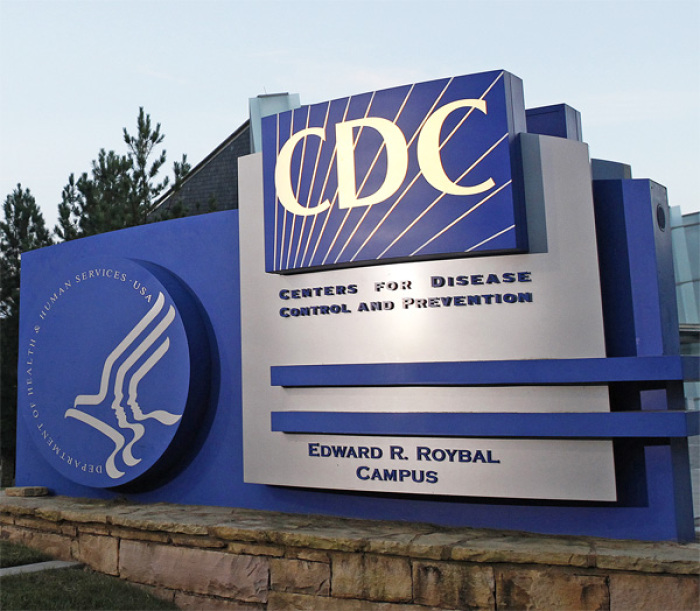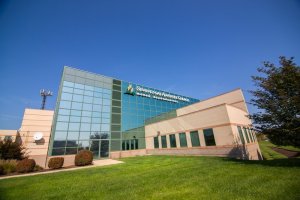Over 60 cases of COVID-19, 4 deaths linked to rural Arkansas church: CDC

As churches nationwide consider plans to reopen, the U.S. Centers for Disease Control and Prevention released a report showing how the coronavirus spread through a single Arkansas congregation earlier this year, resulting in dozens of infections and four deaths.
Titled “High COVID-19 Attack Rate Among Attendees at Events at a Church — Arkansas, March 2020,” the report released on Tuesday focuses on a rural church known as “church A.” The CDC reports that a cluster of at least 61 confirmed COVID-19 cases in the community were traced back to the church.
According to the report, the church’s pastor and wife were reported on March 16 to be the first two cases of COVID-19 in a rural county of about 25,000 people.
The couple attended church events from March 6 to March 11. The wife began showing symptoms of nonspecific respiratory symptoms and fever on March 10, followed by her husband on March 11.
According to the report, the pastor attended a Bible study group on March 11 before his symptoms developed.
Of 92 attendees at the church from March 6 to March 11, the CDC reports that 35 people (or 38%) were infected with COVID-19 and three died. The three who died were age 65 and older.
The report also states that there are an additional 26 cases and one other death linked to the congregation that impacted people outside the church in the broader community.
The cluster of coronavirus cases linked to the church was investigated by the Arkansas Department of Health.
The data indicates that the highest attack rates were among people ages 19 to 64 (59%) and those over 65 years of age (50%).
“Despite canceling in-person church activities and closing the church as soon as it was recognized that several members of the congregation had become ill, widespread transmission within church A and within the surrounding community occurred,” the report explains.
“The primary patients had no known COVID-19 exposures in the 14 days preceding their symptom onset dates, suggesting that local transmission was occurring before case detection.”
According to the report, two participants (not the pastor and his wife) who attended children’s events held March 6 to March 8 were “found to have had onset of symptoms on March 6 and 7.”
“These represent the primary cases and likely were the source of infection of other church A attendees,” the report adds. “The two out-of-state guests developed respiratory symptoms during March 9–10 and later received diagnoses of laboratory-confirmed COVID-19.”
The CDC recognized four limitations with its report. One limitation is that some infected individuals might not be included in the data because they were not tested. Additionally, CDC notes that “tracking out-of-state transmission was not possible.”
The report explains that while only 35 cases were confirmed among 92 church attendees, only 45 church attendees were tested.
The report also acknowledges the possibility that patients in the study could have been exposed to COVID-19 outside of the church. Also, information on individual behaviors, such as shaking hands and giving hugs, were not collected by researchers.
The CDC report comes as some states and localities across the U.S. are beginning to soften restrictions on large gatherings as they enter the beginning phases of their coronavirus recovery plans.
As a result, churches nationwide are making plans for how and when they will resume worship services. For the past two months, many churches in the U.S. have followed social distancing guidelines and halted in-person services. But some churches have defied the orders.
In its report, the CDC warns that churches and other faith-based organizations that are planning to resume in-person operations “should be aware of the potential for high rates of transmission of SARS-CoV-2.”
“These organizations should work with local health officials to determine how to implement the U.S. Government’s guidelines for modifying activities during the COVID-19 pandemic to prevent transmission of the virus to their members and their communities," the CDC advises.
The spread of COVID-19 has also occurred in other church communities across the globe as much emphasis has been placed on how the virus can easily spread in larger gatherings.
For example, the first confirmed case of COVID-19 in Washington, D.C., was an Episcopal priest who in early March tested positive for the virus after he shook hands with around 100 parishioners at church.
The Rev. Tim Cole, rector at Christ Church Georgetown, was eventually hospitalized. But by the end of the month, he was able to return home for further recovery.
In April, a California megachurch was linked to dozens of cases of coronavirus, which resulted in the death of two church members.
An evangelical church conference in France was blamed in late March for sparking what was at the time the country’s largest cluster of coronavirus cases.
In early March, a church was blamed for the early spread of the virus in South Korea.
A church in Georgia decided this week to again shut down its in-person worship services after members and leaders tested positive for the coronavirus after reopening.





























